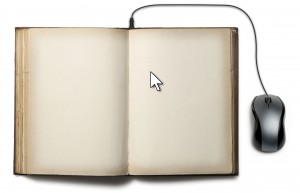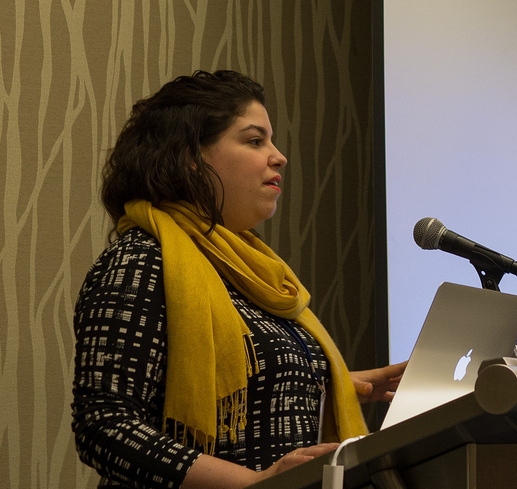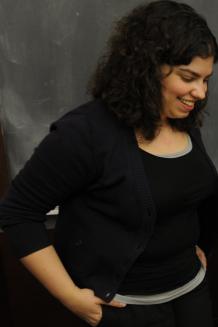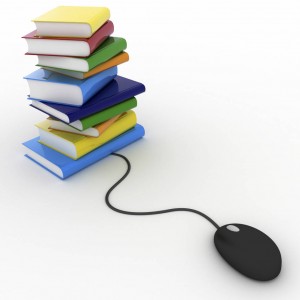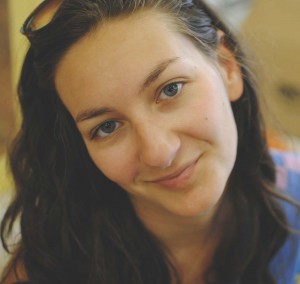 “A women’s college is not only a place to receive a focused, supportive education or experience a community that inspires confidence and empowerment, but it is a place to make your own.”
“A women’s college is not only a place to receive a focused, supportive education or experience a community that inspires confidence and empowerment, but it is a place to make your own.”
In this guest blog post, freshman Lara Fields shares her first experiences of what the Bryn Mawr community has to offer. In the impression she paints, the supportive and open culture of Bryn Mawr encourages women to grow to their full potential, released from the stigma and pressure of the stereotypes that they so often fight in coeducational settings. Thank you, Lara, for sharing your gleanings from your first semester with us!
…
When I first arrived at Bryn Mawr, I heard a variety of newly minted freshmen admit that they never expected to attend a women’s college. I know it was something I found myself saying time and again, but I was surprised to hear that so many incoming students felt the same way. When I probed into why some felt the way they did, many expressed similar reasons behind their attitudes: they thought it would be socially and academically limiting.
It seems that in this age of coed higher education, the idea of attending a single sex school is not seriously considered by prospective female college students, in part, due to negative stigma associated with all female colleges. I know I was guilty of buying into the false stereotype that, nowadays, only aggressive, ultra feminist women seek out and attend single sex colleges, despite the fact that I had no real experience with anyone who had been through a single-sex education. When I look back on my attitude I feel ridiculous, but in my mind at the time I felt that without a large presence of male students, Bryn Mawr would be confining. I wanted the classic “college experience,” and I was not confident Bryn Mawr could give me what I thought I wanted. I have gradually realized that my negative attitude was strongly influenced by the fear of being labeled by individuals who were as ignorant as I was of the merits of a women’s education. Despite feeling trepidatious during the first week of school, since I have started my career at Bryn Mawr, I feel more confident, independent, and able to go about being myself without the fear of judgment or ridicule. However, I will readily admit that I am missing out on the typical “college experience,” which is in no way negative. Bryn Mawr, as a women’s college, offers opportunities that far out-weigh what many coed institutions can provide: a dynamic environment for young women, like myself, to grow academically, a safe and welcoming atmosphere that supports open dialogues about women’s issues, and a close-knit sisterhood of like-minded students that will follow graduates throughout their lives.
The role women’s colleges have played in offering intellectually stimulating environments for female students is as important in this day and age as it has been in decades past. Originally, a women’s college was usually the only avenue for academically gifted women to get a higher education, and is the reason for Bryn Mawr College’s existence. Because of its long history as a female-centric institution, Bryn Mawr has a tradition of providing a supportive, yet challenging academic experience specifically for women. Personally, the all-female environment has helped me take a more active role in my classes. In my high school there was a stigma that participating heavily in class meant you were “acting like a know it all” or trying to show off. Instead of animosity, there is a great degree of support offered by fellow students and faculty because it is recognized that the classroom is a place to express one’s ideas and opinions. It is clear that this supportive attitude has bred an environment that encourages intellectual curiosity and motivates students to pursue their academic passions. For instance, there is immense support for students who want to pursue traditionally male dominated fields like Math, Computer Science, Biology, Chemistry, and Physics. While I am personally interested in the humanities, I have many friends and classmates (including two of my roommates) who are studying math and science-heavy subjects, illustrating that this institution not only creates an intellectually challenging environment, but that it attracts women who are motivated to pursue a wide range of academics. I also know many students who are undecided about what they want to study because they have so many interests. Bryn Mawr’s faculty and advisors encourage their students’ exploration of the different academic options available because the school understands that, at this early stage in a student’s life, one might not have fully realized their academic passions. The diversity of interests within the student body at Bryn Mawr shows that there is no one academic area that women wish to pursue, and that no matter the subject, students here can follow their interests with support and encouragement.
The majority female student body also makes the ability to discuss women’s issues an easy and open experience, even in reference to issues seen as controversial like sexuality and female health. Back home I had many male and female friends joke that I would “turn into a lesbian” if I went to a women’s school. While there is a large lesbian population at Bryn Mawr, it’s not endemic of the sexual turning power of a women’s college, but the ability for students to be open about their sexual identity. A key quality of Bryn Mawr’s single-sex environment is that the student body can easily foster discussions concerning alternative sexuality without backlash, giving new students the ability to meet and interact with openly gay, bi-sexual, and transgendered students. In addition, because the student body is majority female, students can feel more comfortable about asking questions without feeling embarrassed or judged. This push for communication concerning alternative sexual and gender lifestyles has stripped the subject of its “taboo” on campus, allowing it to be a normal, accepted part of the social landscape of the college. On the same note, this open communicative approach epitomizes how female health is addressed in the college. Topics relating to sex, drinking, and assault are not hush hush, but widely discussed to give students the necessary information to make smart and informed decisions throughout their college experience. Copious resources are offered to allow students to make healthy decisions like supplying free condoms, providing free counseling sessions with campus psychologists, and establishing trust between public safety and students. Rather than hammering out rules enforcing “do’s” and “don’t’s” on campus, the administration focuses on ways to keep students safe without compromising our opportunities to participate in typical college activities. They trust that by laying out the facts and being communicative, students will make independent, adult decisions relating to safety and health. This trust is no less visible than between public safety officers and students. On Bryn Mawr’s campus, instead of feeling that public safety officers are people to avoid, students understand that if they get into trouble, officers are there to help, not hassle. This level of open communication and trust remains a profound aspect of the single sex environment of Bryn Mawr and should be taken as role model behavior by other institutions.
However, the most profound aspect of this all female institution is the lifelong sisterhood that will follow students after graduation. Already in my first month of school, I have developed friendships that are strong and close, and I cannot wait to explore them in the next four years. I have noticed that even with students I do not already know, there is an innate ease and camaraderie between us. So far, this welcoming spirit was most prominent during the celebrated Bryn Mawr tradition, Parade Night. Walking through the two lines of upperclassmen, with their well wishes, bright lanterns, and beaming faces gave me an intense sense of belonging. This feeling was enforced when, later that night, my roommates and I were visited by the students who had lived in our quad the year before. They were crying and telling us how lucky we were to be living in our room. They shared with us stories of their late night dance parties, the numerous crazy escapades, inside jokes, and overall happy memories they created in our dorm room. However, what was most touching was when they told the four of us, “we don’t know you guys yet, but we love you already! Our door is always open!” Before excusing themselves, they each gave us hugs, and eventually left the room skipping out. I don’t think I will ever forget that moment. Their sincerity showed me that these women had not only made Bryn Mawr their school, but their home, filled with the life long memories, warm emotions, and joyful insanity that I missed back home with my friends and family. I knew at that moment I had made the right decision to come Bryn Mawr.
What can be taken out of this essay is that a women’s college is not only a place to receive a focused, supportive education or experience a community that inspires confidence and empowerment, but it is a place to make your own. It is a place where you can be yourself, where you can squander the nights away with talking, shouting, and giggling. It is a place filled with personalities galore and a million opinions. It is a place where women can be women without defining what that means. It is a place where your friends are around one corner, and around the other corner. It is a place to make your own. It is a place one can call home.
…
Do you have thoughts about the place of the women’s college in the twenty-first century educational landscape? Have there been aspects of your experience that have shaped your understanding of education for women in the world today? Respond in the comments, or tweet us @GreenfieldHWE!
